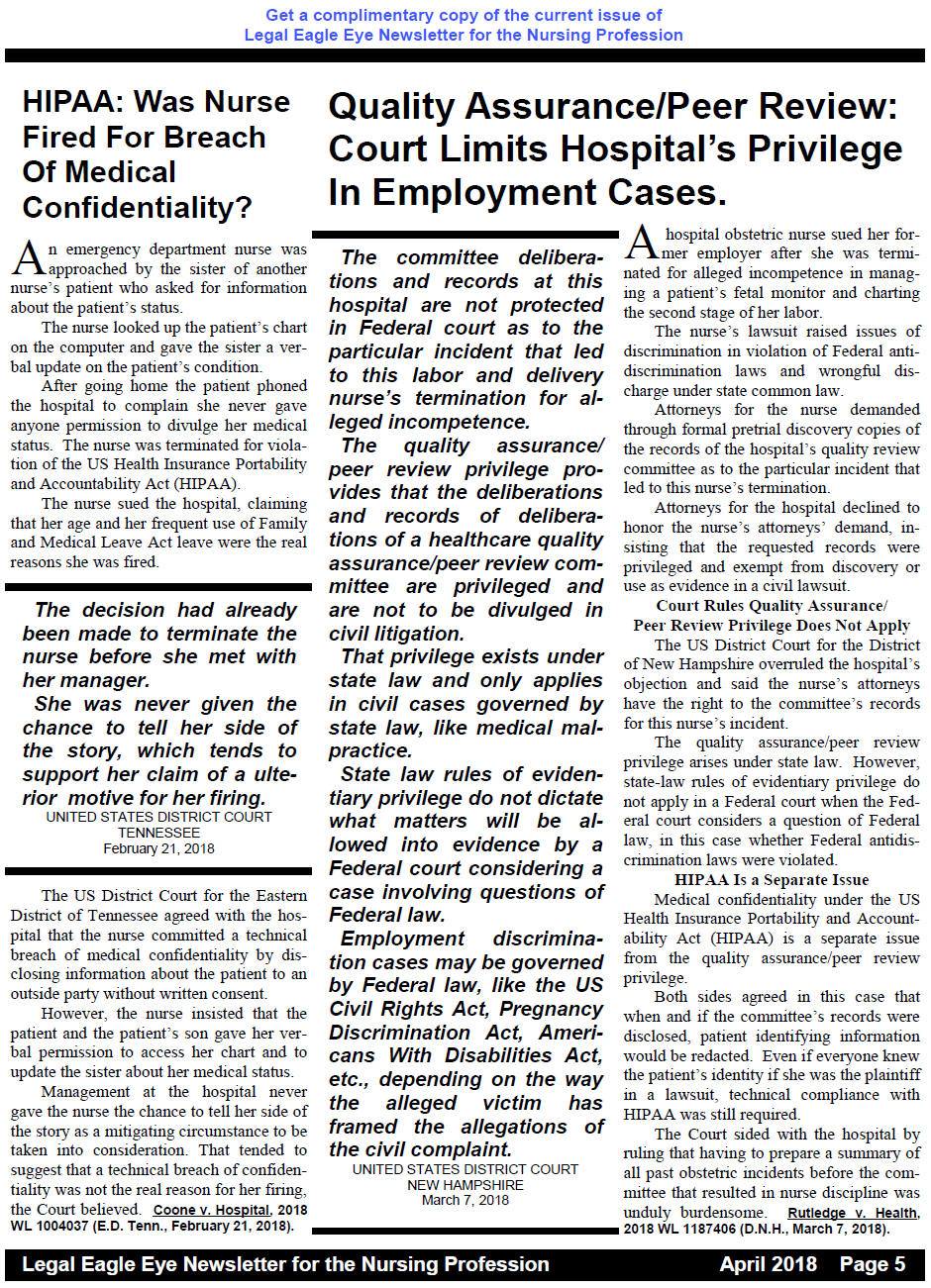
The committee deliberations and records at this hospital are not protected in Federal court as to the particular incident that led to this labor and delivery nurse’s termination for alleged incompetence.
The quality assurance/peer review privilege provides that the deliberations and records of deliberations of a healthcare quality assurance/peer review committee are privileged and are not to be divulged in civil litigation. That privilege exists under state law and only applies in civil cases governed by state law, like medical mal-practice. State law rules of evidentiary privilege do not dictate what matters will be allowed into evidence by a Federal court considering a case involving questions of Federal law.
Employment discrimination cases may be governed by Federal law, like the US Civil Rights Act, Pregnancy Discrimination Act, Americans With Disabilities Act, etc., depending on the way the alleged victim has framed the allegations of the civil complaint. UNITED STATES DISTRICT COURT NEW HAMPSHIRE March 7, 2018
A hospital obstetric nurse sued her former employer after she was terminated for alleged incompetence in managing a patient’s fetal monitor and charting the second stage of her labor. The nurse’s lawsuit raised issues of discrimination in violation of Federal antidiscrimination laws and wrongful discharge under state common law.
Attorneys for the nurse demanded through formal pretrial discovery copies of the records of the hospital’s quality review committee as to the particular incident that led to this nurse’s termination. Attorneys for the hospital declined to honor the nurse’s attorneys’ demand, insisting that the requested records were privileged and exempt from discovery or use as evidence in a civil lawsuit.
The US District Court for the District of New Hampshire overruled the hospital’s objection and said the nurse’s attorneys have the right to the committee’s records for this nurse’s incident. The quality assurance/peer review privilege arises under state law. However, state-law rules of evidentiary privilege do not apply in a Federal court when the Federal court considers a question of Federal law, in this case whether Federal antidiscrimination laws were violated.
Medical confidentiality under the US Health Insurance Portability and Accountability Act (HIPAA) is a separate issue from the quality assurance/peer review privilege. Both sides agreed in this case that when and if the committee’s records were disclosed, patient identifying information would be redacted. Even if everyone knew the patient’s identity if she was the plaintiff in a lawsuit, technical compliance with HIPAA was still required.
The Court sided with the hospital by ruling that having to prepare a summary of all past obstetric incidents before the committee that resulted in nurse discipline was unduly burdensome. Rutledge v. Health, 2018 WL 1187406 (D.N.H., March 7, 2018).